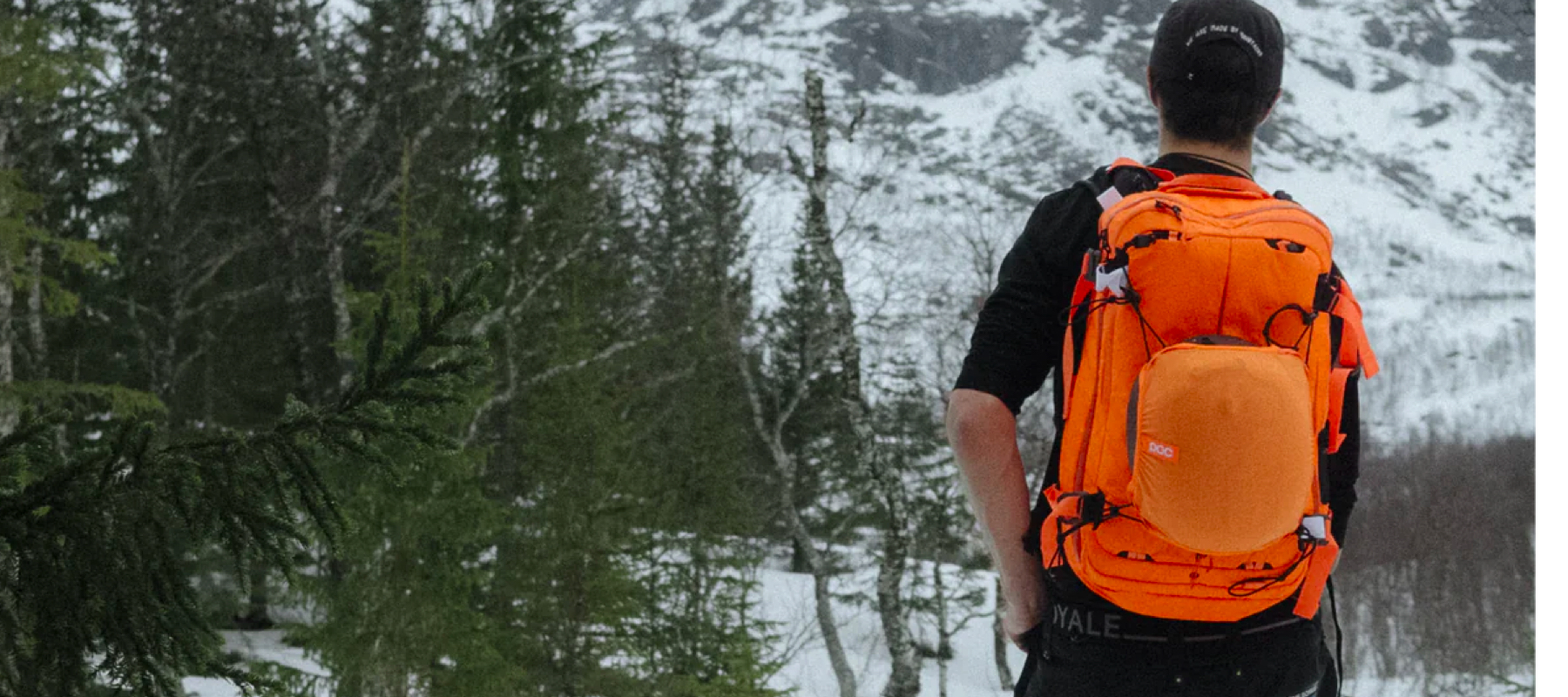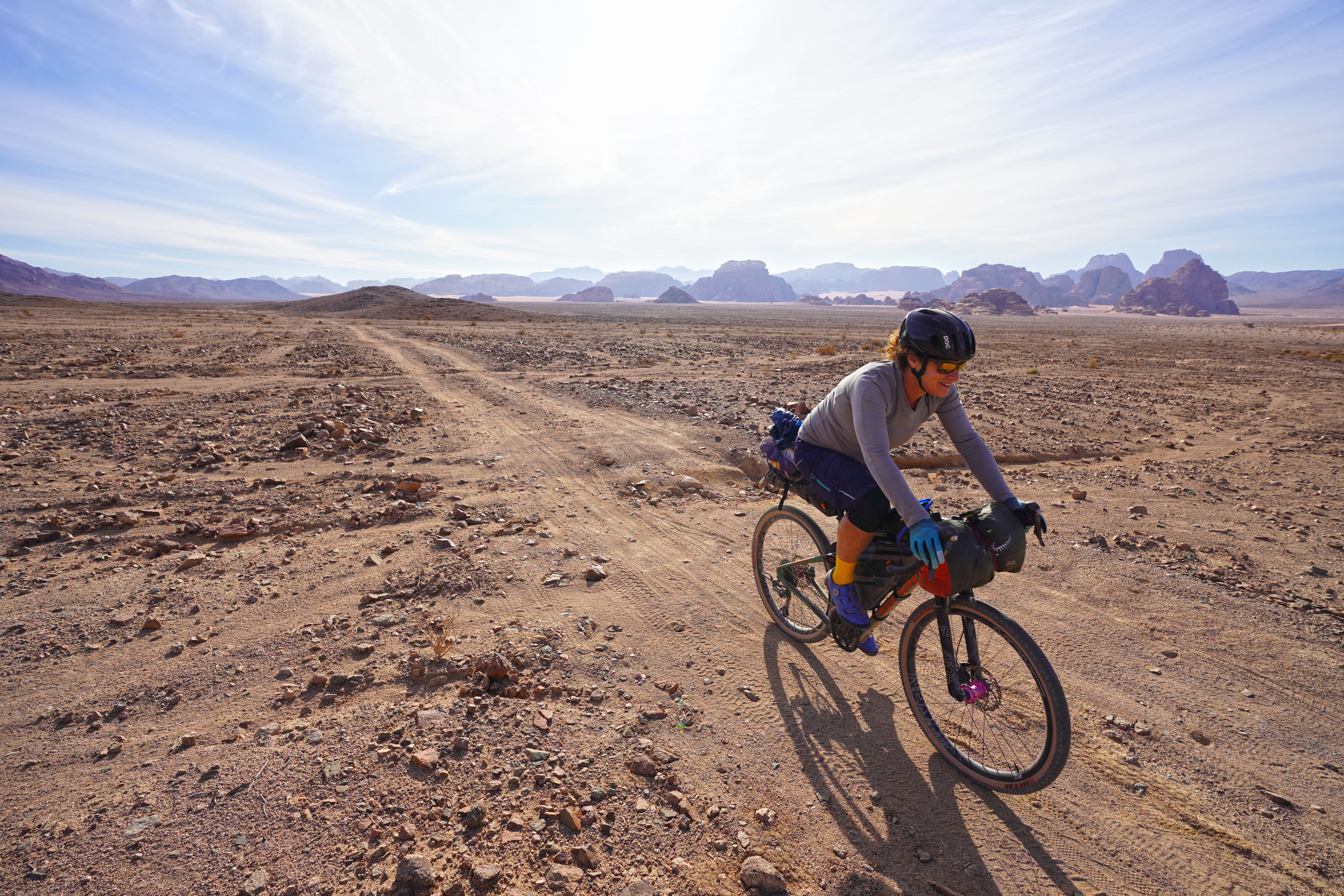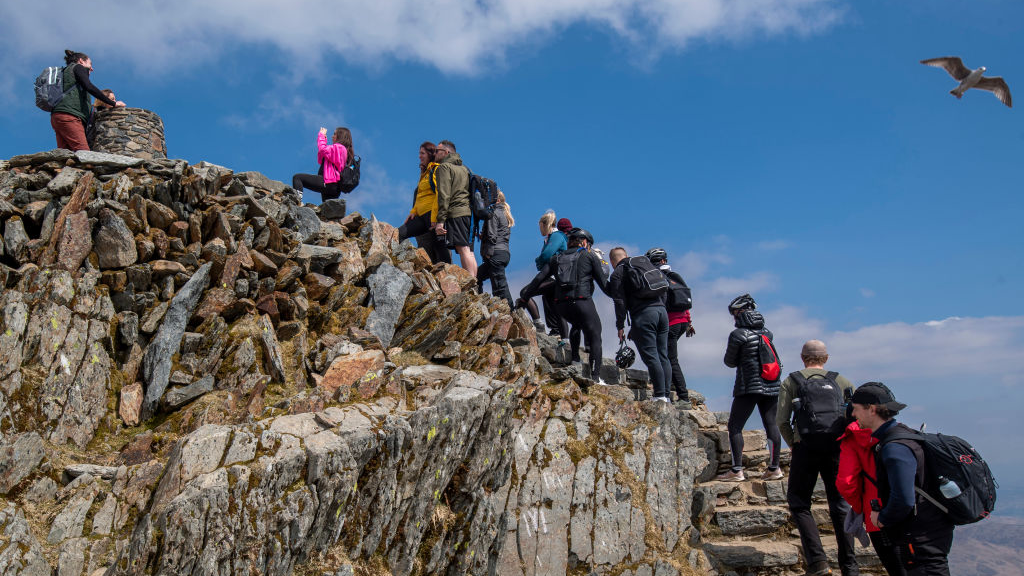Advnture Verdict
A pack that has your back – the POC Dimension Avalanche Backpack offers an impressive range of safety and protective features, and it’s also highly functional, impressively spacious and built to last.
Pros
- +
Safety orange is easy to spot in winter
- +
The rechargeable Alpride E2 Airbag allows for multiple deployments per charge and has an LED screen showing battery levels
- +
Comes with a built-in RECCO reflector and twICEme NFC medical ID chip
Cons
- -
No hip pockets
- -
One size and volume only (and on the large side)
- -
Buckles take practice – they work better as the webbing stretches with use
You can trust Advnture
POC Dimension Avalanche Backpack: first impressions
It’s no exaggeration to say that the POC Dimension Avalanche Backpack is the safest ski backpack you can buy. That makes it one of the priciest, too, but happily it’s also one of the most durable, so you should get plenty of seasons’ use out of it.
• List price: $1,300 (US) / £1,200 (UK)
• Fabric: Dimension Polyant polyester laminate
• Sizes: One size only
• Volume: 25L
• Weight: 3.2kg / 7lb
• Airbag Compatible: Yes
• Colors: Fluorescent Orange / Uranium Black
An avalanche airbag pack, the Dimension uses Alpride’s E2 rechargeable Electronic Airbag System with supercapacitor technology. It’s lighter, with more volume in the balloon than previous Alpride packs, and it also deploys faster than previous versions. Though it’s battery-powered, it’s extremely reliable in the cold, and it’s significantly smaller and lighter than previous versions of Alpride.
In designing the Dimension, POC didn’t just cob this pack together or adapt a pre-existing pack from its line. The Dimension is made from 133 pattern pieces and 66 distinct webbings designed for durability, user-friendliness and safety. In addition to Alpride, the Dimension has an embedded RECCO reflector, which makes a user searchable to rescue teams, and a twICEme medical ID NFC chip that stores first aid data for first responders.
POC Dimension Avalanche Backpack: on the slopes
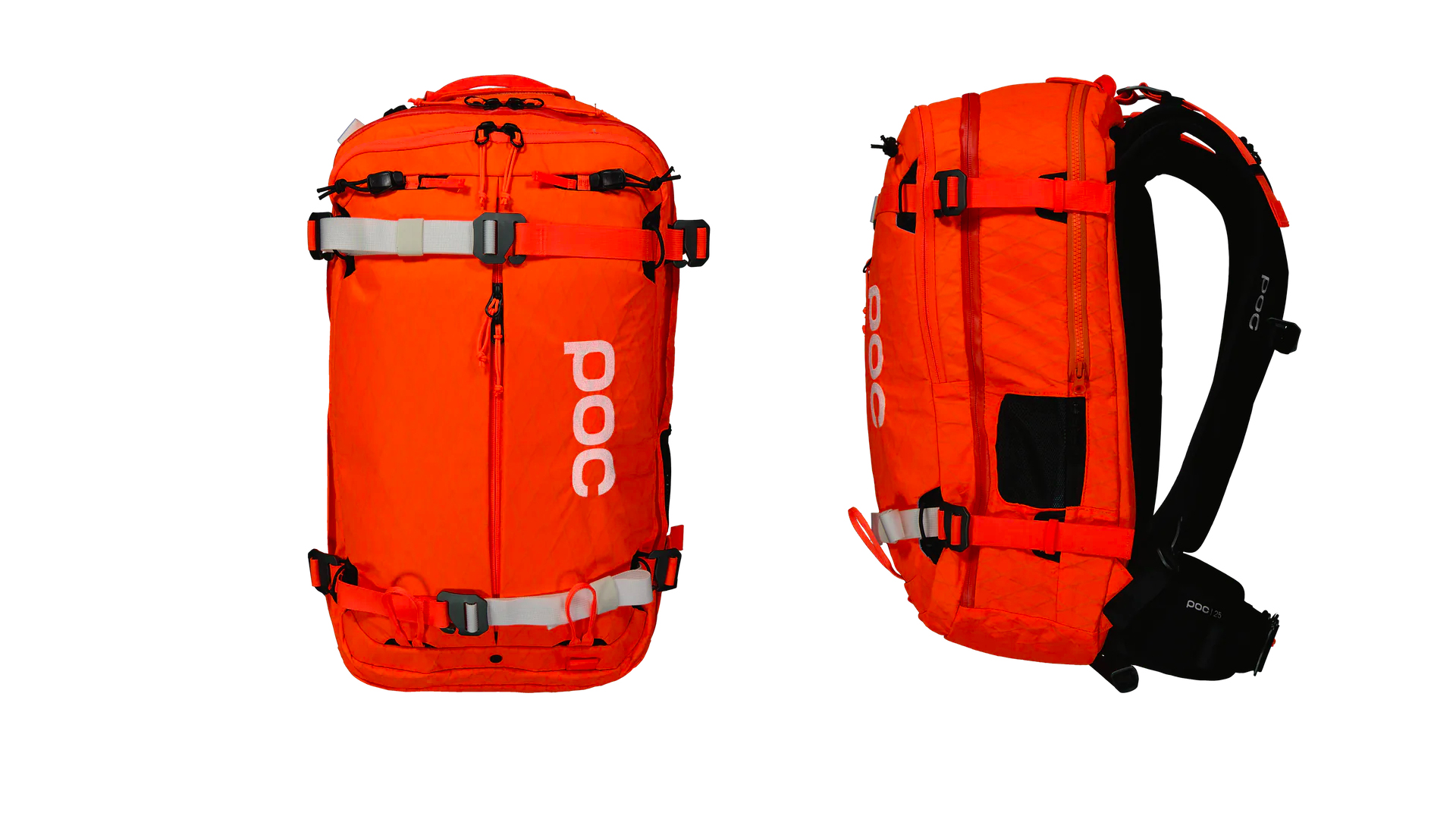
The user experience really starts with the Alpride E2 rechargeable Electronic Airbag System contained within this ski backpack. It’s a canister-free system (many other avalanche airbags rely on compressed air for balloon inflation) and as a destination skier, that’s a feature I immediately appreciated.
So when I flew to Norway to ski, I didn’t have to build in extra time to argue with airline security, and I didn’t have to find somewhere to fill my canister on arrival.
The Alpride system now has a tiny LCD screen showing battery levels so I knew when the pack was charged and ready for action. The pack not only let me choose if I wanted the airbag deployment handle on the left or right, but I could also choose the height.
On test I found the pack to be comfortable and protective with a reinforced back panel and adjustable straps that kept my load from wobbling or shifting when I was skiing. Dimension Polyant fabric (a quadruple-layer, bonded polyester originally made for sailors) felt bomb-proof. The pack was DWR-treated, so in wet conditions water beaded and rolled off instead of soaking in.
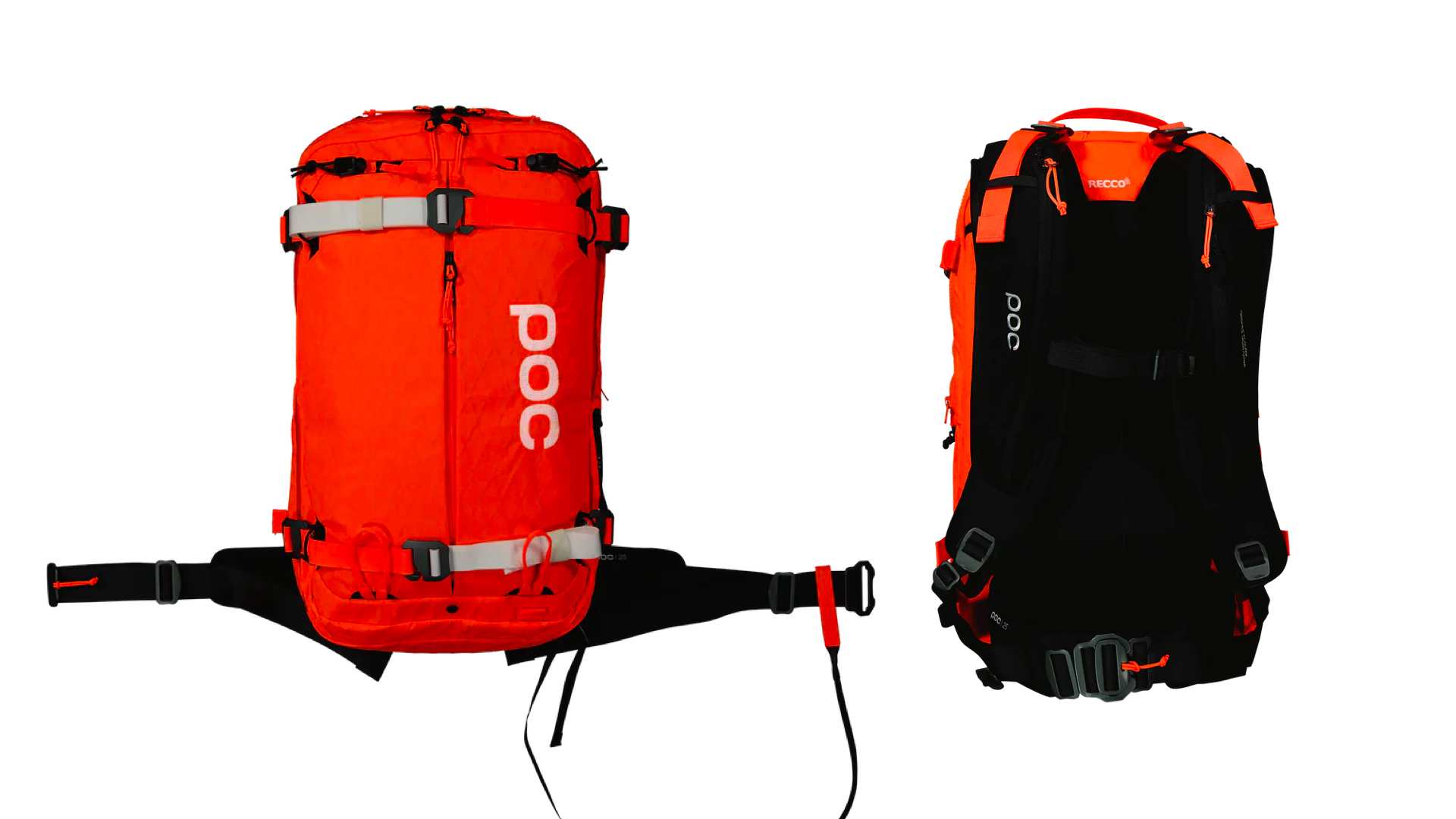
A lot of avalanche airbags feel smaller than their claimed capacity, but the Dimension felt larger. Four internal pockets in addition to a ski goggles pocket, a shovel pocket and an extremely spacious main compartment helped me stay organized and made it quick to grab a first aid kit, ski repair kit and lunch. When I was skinning, I stored layers in a vertical zip pocket on the front of the pack. A removable helmet sling went inside the pack when I transitioned from skinning to skiing.
I appreciated the option to carry skis in diagonal or A-frame formation (snowboard carry is vertical). Aluminum hardware ensures I’ll never break a buckle. Many ski packs use metal buckles only on the waist strap; the Dimension uses metal buckles everywhere.
The Dimension comes with a protective bag, which is common for helmets, but a first for avy packs that I know of.
This pack is one size, with a solid M/L torso length. I’m 5ft 7in and it fits me well enough, but I wouldn’t recommend it for shorter skiers / riders unless you have a long torso.
Vermont-based writer, photographer and adventurer, Berne reports on hiking, biking, skiing, overlanding, travel, climbing and kayaking for category-leading publications in the U.S., Europe and beyond. In the field, she’s been asked to deliver a herd of llamas to a Bolivian mountaintop corral, had first fat-biking descents in Alaska, helped establish East Greenland’s first sport climbing and biked the length of Jordan. She’s worked to help brands clean up their materials and manufacturing, and has had guns pulled on her in at least three continents.
